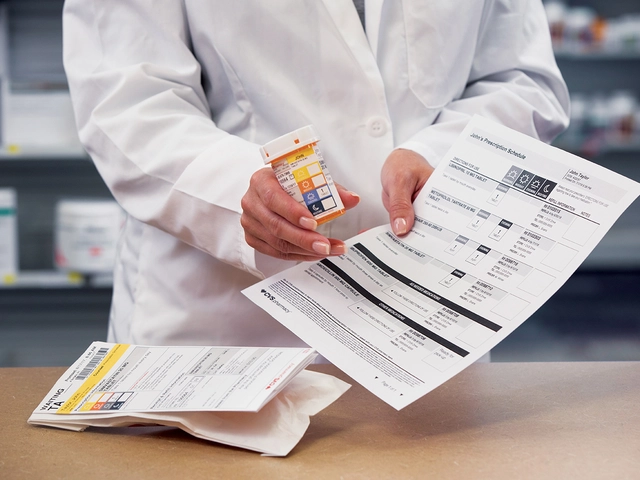Living with Mycophenolate Mofetil (MMF): What to Expect and How to Stay Safe
Mycophenolate mofetil (MMF) is a common immunosuppressant used after transplant or for autoimmune diseases. It works by lowering your immune response, which helps prevent rejection or calm inflammation—but that also changes how your body handles infections, vaccines, and some medicines. Here are clear, practical things you need to know.
Side effects, when to call your doctor
Expect some GI symptoms at first—nausea, diarrhea, or stomach pain. Try eating small, bland meals and drinking water. If diarrhea lasts more than 24 hours, is bloody, or you’re faint/dehydrated, call your provider.
MMF can lower blood counts. If you notice fevers, sore throat, unusual bruising, or bleeding, contact your clinic right away—these can be signs of low white cells or platelets. Also watch for jaundice, dark urine, or persistent stomach pain and report these promptly; they can indicate liver problems.
Monitoring, vaccines, and pregnancy
Your care team will order regular blood tests—CBC (blood counts), liver tests, and kidney checks—more often when you start or change dose. After things are stable, tests might be every 1–3 months. Keep every lab appointment and bring a list of your meds to visits so the team can check for interactions.
Vaccines: avoid live vaccines while on MMF (like MMR or live shingles). Inactivated vaccines—flu, COVID, pneumococcal—are safe and recommended; try to get them before starting MMF or talk timing with your doctor. If you catch a fever after a vaccine, call your provider.
Pregnancy: MMF raises the risk of miscarriage and birth defects. Women of childbearing age need strict contraception and pregnancy testing before starting and during treatment. If you’re planning a pregnancy or become pregnant, stop MMF only under your doctor’s guidance and switch to a safer option first. Men should discuss contraception with their doctor too; follow clinic advice on timing before conception.
Drug interactions: some antacids, cholestyramine, and certain other meds can change MMF absorption. Always check with your pharmacist before adding over-the-counter drugs or supplements. Avoid using other strong immune-suppressing products without clinician approval.
Daily tips: take MMF as prescribed—same times each day. Use a pillbox or phone alarm. If you miss a dose, take it as soon as you remember unless the next dose is close; don’t double up. Store tablets at room temperature, away from moisture and heat.
Travel and infections: carry a list of your medicines and contact info for your transplant or specialty clinic. If you get a fever over 100.4°F (38°C), cough, or other infection signs, seek care quickly—early evaluation matters. Practice basic infection prevention: handwashing, avoiding close contact with sick people, and safe food handling.
Talk with your care team openly about side effects, contraception, live vaccine timing, and any herbal or OTC products you use. MMF requires attention, but with regular monitoring and open communication, you can manage day-to-day life safely.

A Patient's Journey: Living with Mycophenolate Mofetil
My journey with Mycophenolate Mofetil began when I was diagnosed with an autoimmune disease. This medication has become a vital part of my daily routine, helping to suppress my overactive immune system. While taking Mycophenolate Mofetil, I've experienced some side effects, but the overall benefits far outweigh the drawbacks. Through regular checkups and open communication with my healthcare team, we've been able to manage my condition effectively. Living with Mycophenolate Mofetil has taught me the importance of self-care and maintaining a healthy lifestyle to support my treatment.
Read More




